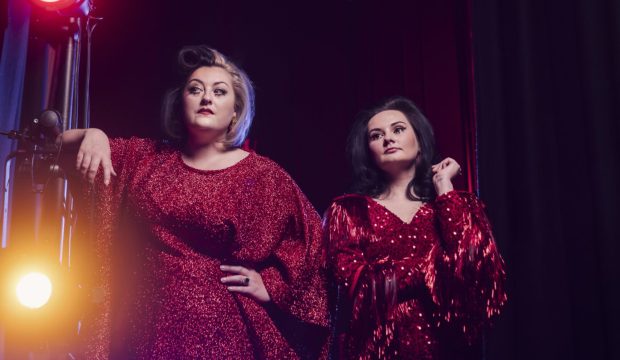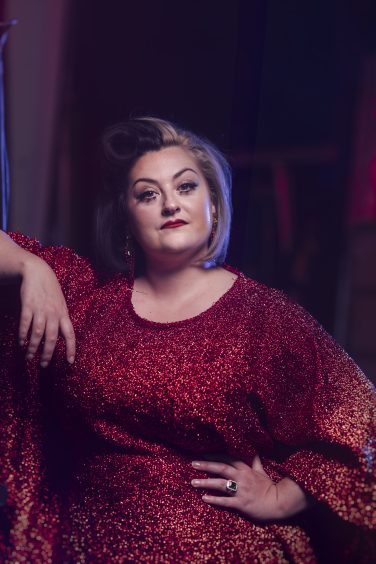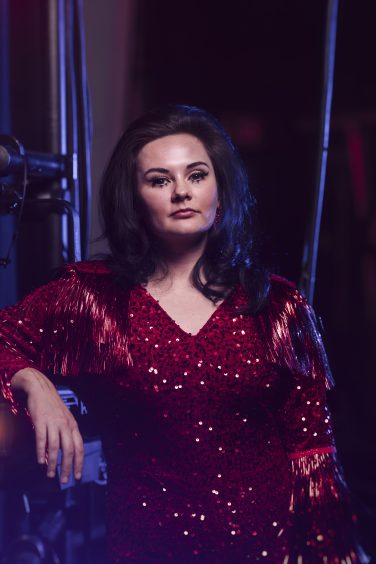
For ten years, comedians Kiri Pritchard McLean and Rachel Fairburn have explored their shared passion for true crime and serial killers on podcast All Killa No Filla.
Self-produced, it’s grown from humble beginnings to having a huge legion of fans and touring the UK and US.
We caught up with them ahead of kicking off their 10th anniversary tour at Glasgow‘s King’s Theatre later this month.
How excited are you to celebrate 10 years of the podcast, and starting in Glasgow?
Rachel: It feels simultaneously like a week and 70 years. We’re dead pleased. We’ve not done a tour since 2019, so we’re just really excited to be getting back out there, doing the shows and it feels quite exciting.
Kiri: I’m getting excited now. I was in the sort of trepidation period for a while, but now I’m just really giddy about all the stuff we’ve got planned. I think we’ve picked a fantastic case to talk about, and kicking off in Glasgow as well.
We’re obviously planning on bringing our A game, but I know from our time as comedians that sometimes in Glasgow you don’t even need to bring your A game because the audience has brought theirs! I just think you can never have a bad one in Glasgow because they come out for a good time.
Rachel: If you start the tour in Glasgow, everything else has to live up to that. You either start there or finish there. You can’t do Glasgow in the middle.
How much does the tour give you a chance to look back on the success of the podcast?
Kiri: Part of me thinks we’re missing a trick by not just sitting on the stage, like old duffers, and playing the best bits! We decided to write a brand new show for it.
What’s lovely is that so many people come along who have listened since the very beginning. We have quite a deep relationship with them, a lot of them have come to our shows and we recognise them.
We all have a shared vocabulary of this podcast and in-jokes that spin out of it. I’m also really proud that people have come along who’ve never listened and come away wanting to because they’ve had such a good time.
There’s something for everyone, but we’re always really conscious, especially in this cost living crisis, to give our fans a good fun night out.
Rachel: Because we’re stand up comedians, we know how to make something funny. We know how to put on a show.
We always want it to be as funny as it can be and we want people to go away thinking they could listen to it for another three hours.
How rewarding is it for you to have such a community around it?
Kiri: We got a lot of messages during the pandemic – because we had no work obligations we were churning podcasts out and doing one a week. I think it meant a lot.
I felt a bit routine-less and a bit rudderless during that time, so it gave us something. I think the listeners really appreciated it as well.
We often still get messages now from people who’ve been having a really tough time but they’ve had us in their ears and it feels like they’ve got mates around. What an honour.
The long and short of it is that we just chat rubbish to each other and then put it out and kind of forget about it. It’s so nice that our relationship is helping anyone in any way, it’s very flattering.
Rachel: We’re cheaper than therapy! We’re mates, we’re not acting, not putting it on and we’re very honest about our lives as well.
We talk about all kinds of things. We’ve spoken about break-ups, things that have happened to us in our lives. It’s relatable.
I think I tell far too much about my life on that podcast. But if someone can think ‘she’s talking about that and she’s alright now’ or conversely, ‘thank God I’m not her!’ I’m happy with that.
People have made their own communities from it, like the Facebook group for the Legends, which is what we call them, they chat and have spin-off groups. Legends who crochet or Legends’ book club. There’s all these groups, predominantly women, that have made friends.
People got married because they met through the podcast and it’s mad really, just from talking rubbish and serial killers, that people have really got on board with it.
What brought you together for the podcast?
Rachel: We lived across the road from each other in Manchester and had never met. At the time, comedy wasn’t as inclusive, you wouldn’t really get two women on the same bill.
We weren’t gigging together but people would say: ‘oh, you two would really get on because you’re into the same things, serial killers, weird stuff, taxidermy’.
Of course, when anyone says that to you, you think: ‘well, I’m not gonna get on with that person am I? You think you know me do you? I’ll prove you wrong.’
Then we met and decided we would do a podcast. We recorded one episode that was absolute dogs**t, quite frankly, the lost tape, which will be around somewhere and I’d hate to hear that.
Kiri said that if we do it, we need structure. We decided to talk about the serial killer’s early life, murders, and obviously decided to give a lot of attention to the victims.
When we started, we just recorded it in my spare room in Manchester in time between gigs on a little microphone. We did everything ourselves and it’s only recently that we have some more people involved helping out with editing and stuff like that.
It’s quite amazing really that from doing that all ourselves in 10 years we’ve toured America, we’ve done all these big gigs. We’ve got this community of Legends. It’s quite impressive, really, when you think about it!
You’re covering heinous acts but the podcast is very funny – how do you maintain the balance?
Kiri: It’s always been really clear for us and I guess that’s the advantage of being comics. It’s not to say we’re playing it safe, but you certainly know things you can joke about, things you can joke about when you’ve got context, and things that are just off the table.
We’re coming to it with that expertise, to use quite a grand term. I think it’s always really clear what you can make fun of and quite often we’re making fun of each other based on a tangent that we’ve gone off on.
The victims have already suffered enough, they don’t need two comedians in a back bedroom making wry comments about them and certainly their families don’t.
That was something that we always was sort of held ourselves to – how would a family member feel if they stumbled across this podcast?
Rachel: It’s not within our nature to be like that. I’m interested in true crime, I don’t approach it rubbing my hands wanting the gory details. It’s a human interest kind of angle. There are podcasts out there I’ve switched off that are quite intrusive.
I think it’s quite important, especially when you talk about people like sex workers being killed, to use the correct terminology.
These are actual people. There’s no such thing as a victim who deserved it, and I think it’s very important to get across that these were women with lives, with families, with interests, and not be celebrating the killer.
What can audiences expect from the live show experience?
Kiri: We’re talking about a really high profile true crime case but not a serial killer because we like to do things a little bit differently at the live shows.
We’re not telling people what it is, but they will definitely have heard of it. We’re doing all the research for that at the moment. It’s an absolutely bonkers case.
Of course, we’re going to be over-dressed. I would say that is the main dress code for our live events. When we started over-dressing for the live shows, so did the audiences!
Surprisingly for a chat about murder, it’s very feel good, very joyous and very glamorous.
What has the podcast done for you two?
Rachel: I would say it’s absolutely helped me find my voice in stand-up. I’m a very different comedian from ten years ago. I’m more myself on stage and I think it’s helped me find out what people find funny about me, which is not what I expected, actually, I’m quite disappointed that nobody likes my clever word play, they just like it when I’m angry.
Also it’s the evolution of a friendship, because we didn’t really know each other that well when we started out. It’s cheesy but it’s made me get to know myself a bit better.
Kiri: I think I speak to you nearly more than anyone else. It’s a really beautiful thing, especially in the kind of era, and I’m hoping it’s the last, that we came up through comedy, where you were encouraged to believe that if there was another woman, she was competition because there was only one spot on a bill or one seat on a panel show.
I’m really proud to say that we’re part of a generation that’s gone: ‘no, we’re not gonna do it like that’. There can be a sisterhood and I really value female friendships anyway, and being in a sort of double act on stage is so fun and intuitive and something that was amazing how quickly it came together on stage.
We don’t rehearse it, it’s an adlibbed show based on research. That’s a really special alchemy that, every now and then, I’ll stand back from and go: ‘oh, we’ve got something really special there’.”
All Killa No Filla Live, King’s Theatre, Glasgow, on March 30. Visit allkillanofilla.com

Enjoy the convenience of having The Sunday Post delivered as a digital ePaper straight to your smartphone, tablet or computer.
Subscribe for only £5.49 a month and enjoy all the benefits of the printed paper as a digital replica.
Subscribe © Drew Forsyth
© Drew Forsyth © Drew Forsyth
© Drew Forsyth